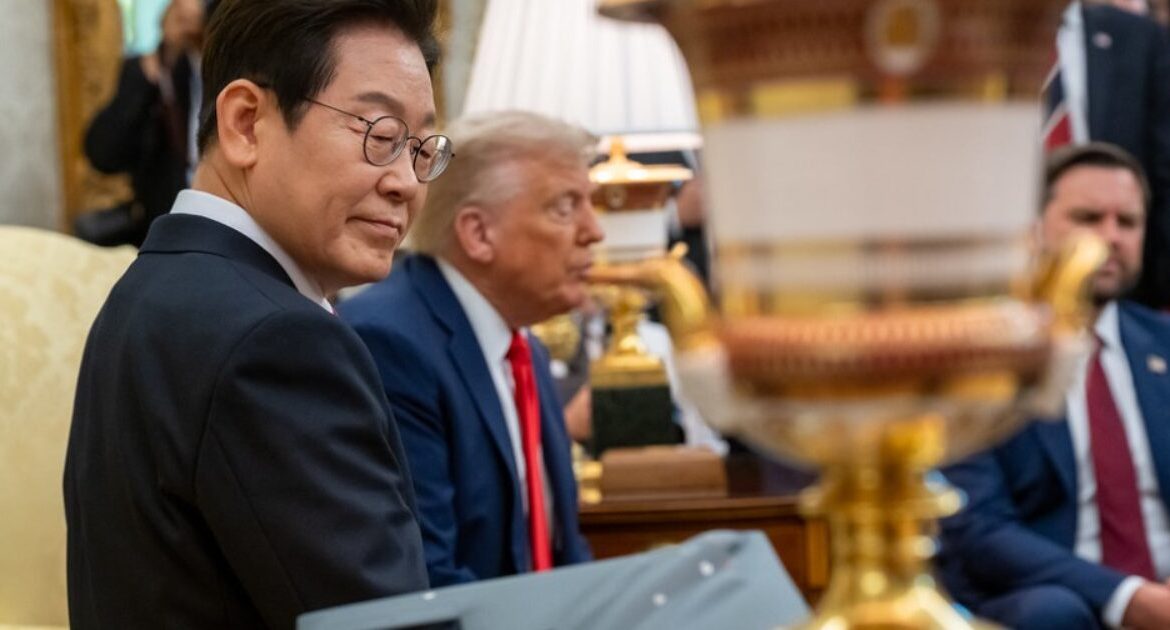
South Korea’s Ruling Party Pushes “Special Court for Rebellion” – A Communist-Style Assault on Judicial Independence

This is the latest in our continuing coverage of the events in South Korea. We are keeping our source anonymous for his/her protection.
Korea’s pro-China totalitarian leader met with President Trump this week at the White House.

President Donald Trump hosts a bilateral meeting with President Lee Jae-myung of the Republic of Korea, Monday, August 25, 2025, in the Oval Office. (Official White House Photo by Emily J. Higgins.)
On August 28, 2025, South Korea’s Democratic Party (DP) crossed a dangerous line. In response to the judiciary’s rejection of an arrest warrant for former Prime Minister Han Duck-soo, the DP not only condemned the courts but also moved to create a so-called “Special Court for Rebellion.”
This is not a normal judicial measure. It is an attempt to strip authority from ordinary courts and build a parallel tribunal designed to guarantee convictions. In reality, this amounts to the creation of a Communist-style pseudo-court—courts in appearance, but not in substance—serving as instruments of political repression.
Key developments on August 28:
** The DP’s emergency committee and hardliners denounced the judiciary’s decision as sending the “wrong signal” to so-called “rebellion forces.”
** Calls for a “Special Court for Rebellion” escalated from rhetoric to formal resolution and legislative planning. According to Yonhap News, the DP will present legislation to establish the tribunal as early as September 4.
** Senior DP lawmakers declared: “The ordinary judiciary cannot be trusted. A special panel is required to handle rebellion charges.”
On social media and in press briefings, DP figures demanded “swift reapplication of warrants” and labeled the judiciary’s independence as an obstacle to “ending rebellion.”
This is nothing less than a Stalinist tactic:
** Branding political opponents as “rebels” to justify extraordinary tribunals;
** Overriding the independent judiciary with a handpicked court loyal to the ruling party;
** Turning the language of law into a weapon for political purge.
The Communist People’s Courts of the 20th century operated in precisely this way: they mimicked judicial form while serving as political tools. The Democratic Party is now attempting to reproduce this in South Korea. It is a direct assault on the separation of powers and the rule of law.
This is not justice—it is judicial theater to consolidate authoritarian control. If unchecked, no opposition leader, dissident, or ordinary citizen will be safe from arbitrary prosecution.
We urge international observers, human rights organizations, and democratic allies to closely scrutinize these developments. A “Special Court for Rebellion” is wholly incompatible with democratic governance. It signals the transformation of South Korea’s judiciary into a party-controlled instrument.
The post South Korea’s Ruling Party Pushes “Special Court for Rebellion” – A Communist-Style Assault on Judicial Independence appeared first on The Gateway Pundit.
